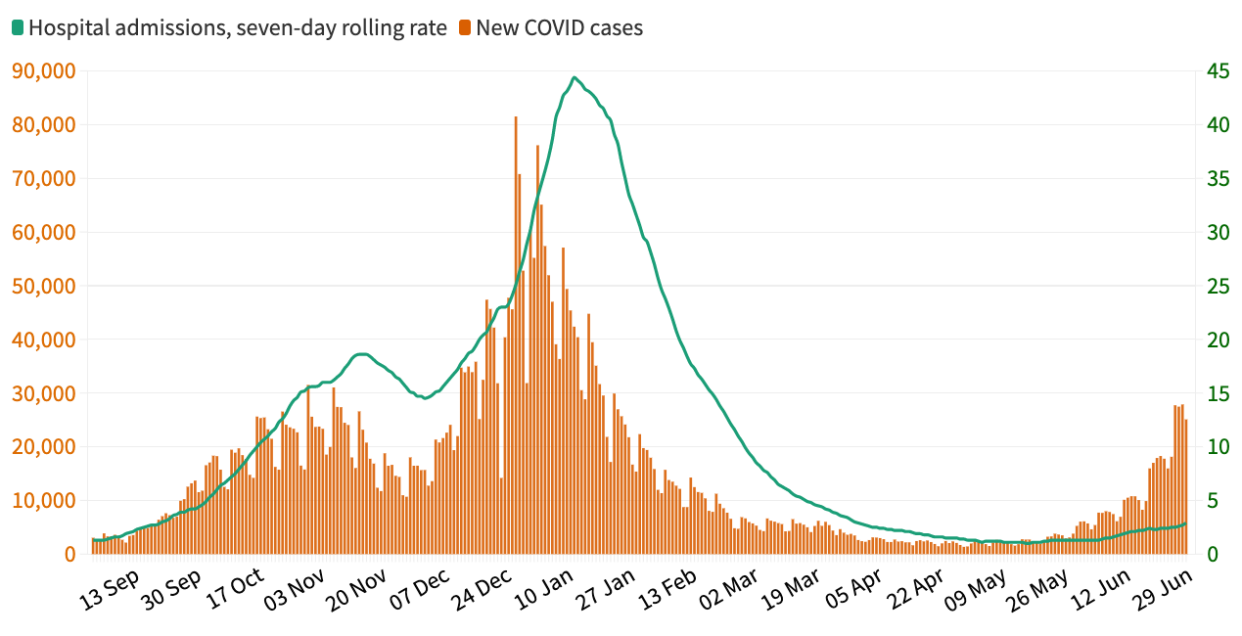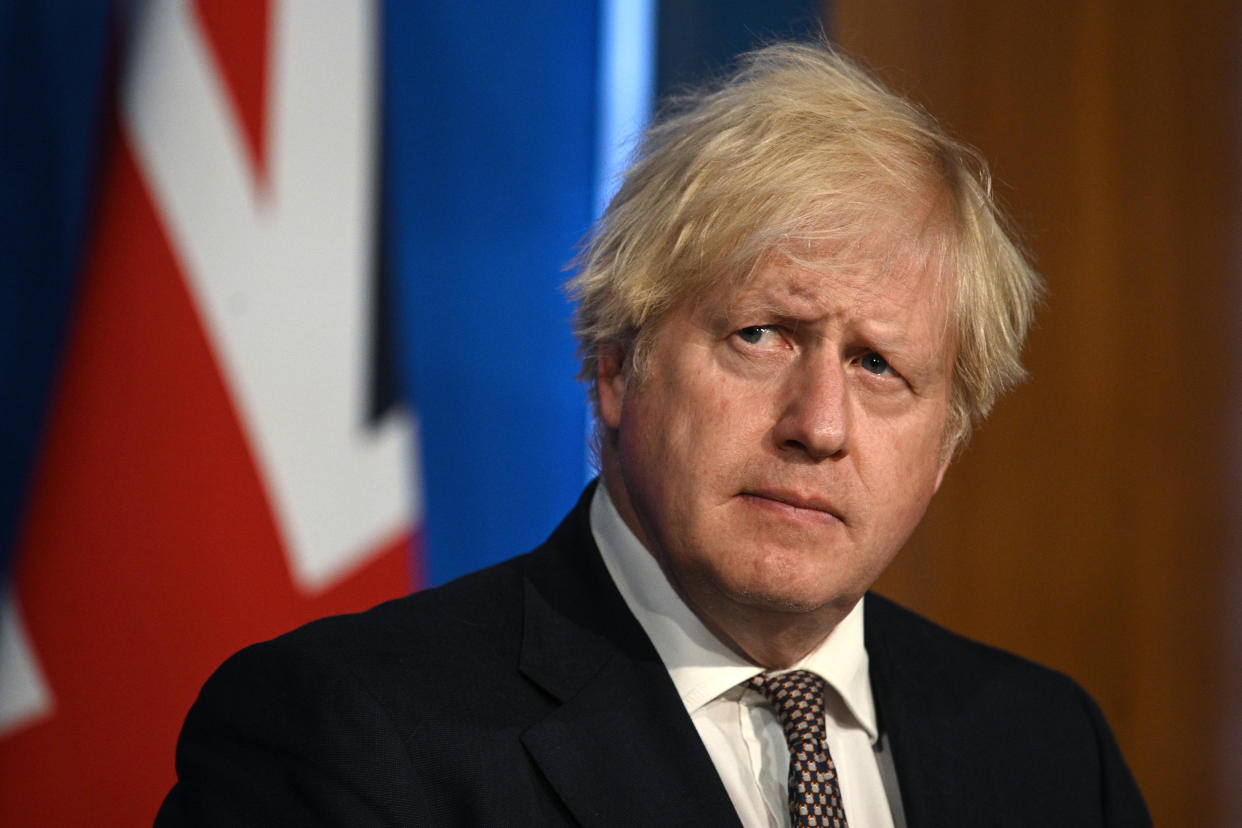Here's what could happen if the UK hits 100,000 daily Covid cases
The UK is bracing itself for a further wave of coronavirus after the health secretary warned there could be 100,000 cases per day later this summer.
Sajid Javid said the unwanted milestone could be reached after the government announced an end to Covid-19 restrictions in England from 19 July.
Making the announcement on Monday that social distancing will end and face masks will no longer be a legal requirement, prime minister Boris Johnson warned that cases will reach 50,000 per day by that date.
But on Tuesday, Javid went further. He told BBC Radio 4’s Today programme: “By the time we get to the 19th, we would expect case numbers by then to be at least double what they are now, so around 50,000 new cases a day.
“As we ease and go into the summer, we expect them to rise significantly and they could go as high as 100,000 case numbers.
“We want to be very straightforward about this, about what we can expect in terms of case numbers.”
Javid said: “But what matters more than anything is hospitalisation and death numbers, and that is where the link has been severely weakened.”
Should daily figures reach 100,000, it would take them well past the UK’s highest tally so far during the pandemic, according to government figures, which was 68,053 on 8 January at the height of the second wave.
Another 27,334 daily Covid-19 cases were reported in the UK on Monday, while there were another nine deaths within 28 days of a positive test.
On Tuesday, Professor Neil Ferguson, from Imperial College London and a member of the government’s Scientific Advisory Group for Emergencies (Sage), said there will be strain on the NHS should daily case numbers rise above six figures.
“At the peak of the second wave, 50,000 cases would translate into something like 500 deaths, but that’s going to be much lower this time, more like 50 or so,” he told the Today programme.

“The challenge is, there’s still the potential of getting very large numbers of cases and so if we get very high numbers of cases a day, 150,000 or 200,000, it could still cause some pressure to the health system.”
He said the ending of restrictions in England “is a slight gamble”, adding: “It’s a slight experiment at the moment, and I think it’s justifiable and I’m reasonable optimistic, but policy will have to remain flexible.”
On Friday, Christina Pagel, a mathematician and professor of operational research at University College London, and a member of Independent Sage, warned there could be 100,000 cases per day by 19 July, double the prime minister’s projection.
She said there are a number of areas of concern with ending Covid-19 restrictions.
Firstly, that although hospitalisations and deaths are lower thanks to the vaccine rollout, they are still rising and “many will still get very sick and some will die” if the UK reaches 100,000 cases per day.
Secondly, she cited figures from the Office for National Statistics (ONS) that almost one million people in the UK were suffering from so-called “long Covid”.
The ONS said last week that long Covid was affecting the ability of about 634,000 people to carry out their daily lives.
Prof Pagel also said statistics show that deprived areas of the UK are hit hardest by coronavirus, with the highest case rates and lowest vaccination rates.
She also warned that a rise in case numbers increases the risk of a new coronavirus variant emerging.
Professor Sir Mark Walport, the government’s former chief scientific adviser, said the lifting of restrictions will make it “even more favourable” for the virus.
He told Sky News: “I don’t think anyone would have imagined taking off all restrictions at a time when there are 25,000 infections a day, doubling about every nine days.
“The reason it’s become possible for ministers to make this decision is because the vaccine programme has become so very successful and has weakened, but certainly not broken, the link between infection and the most serious consequences of disease.”
But Calum Semple, professor of child health and outbreak medicine at the University of Liverpool and a member of Sage, said lifting restrictions is a “calculated risk”.

He told Times Radio: “We do have good data now that does indicate we are gradually breaking the links in the chain between community cases and severe cases in hospital.
“There’s now an incredibly strong signal that the vaccination is working and protecting the vast majority of people.”
On Monday, Professor Chris Whitty, England’s chief medical officer, acknowledged there was a “mixed” view among scientists on the timing of lifting restrictions.
“At a certain point, you move to the situation where instead of actually averting hospitalisations and deaths, you move over to just delaying them,” he said.
“So you’re not actually changing the number of people who will go to hospital or die, you may change when they happen.
“And there is quite a strong view by many people, including myself actually, that going in the summer has some advantages, all other things being equal, to opening up into the autumn when schools are going back and when we’re heading into the winter period when the NHS tends to be under greatest pressure for many other reasons.”


